MAKING MEANING
For therapists trying to help clients through difficult emotional struggles, the therapist inevitably has to talk with clients about seeing some potential in the difficult circumstances they find themselves in.
Together, client and therapist attempt to find meaning in the client’s life. These conversations are about the big picture items: what gives my life meaning and purpose? How do I focus my energy on those things that matter most? For many of us asking these questions stirs up longings for deeper connections with others than what we are currently experiencing and can leave us feeling more dissatisfied.
We avoid these deeper reflections because we do not want to feel those longings and disappointments. But in avoiding these questions we increase our risk of depression and anxiety. Our distractions may keep us skimming along the surface of our lives for a long time, but sooner or later the need to consider them emerges. Trying not to feel is what leads us into unhealthy habits far more than facing difficult emotions.
For Christian practitioners and Christian clients, there’s a treasure-trove of encouragement to discover hidden potential in our struggles. 21st century Christians often forget the call to follow Jesus is a call to follow the Suffering Servant of God. The potential for growth through suffering is declared all through the New Testament (see Romans 5 for one example). The basic pattern of life for Christians is rooted in Christ’s dying and rising to new life. Suffering leading to joy.
In the midst of any low point, whether it comes to us from outside through injustice or broken relationships or from within us through feelings of loneliness, inadequacy, fear, and loss, this potential of finding growth in the midst of the struggle remains. Hard times do not make our lives meaningless. To the contrary many people tell us of the deep realizations and added meaning they discovered because of their suffering. Often simply looking for meaning is just enough hope to turn a struggling pilgrim to the light.






